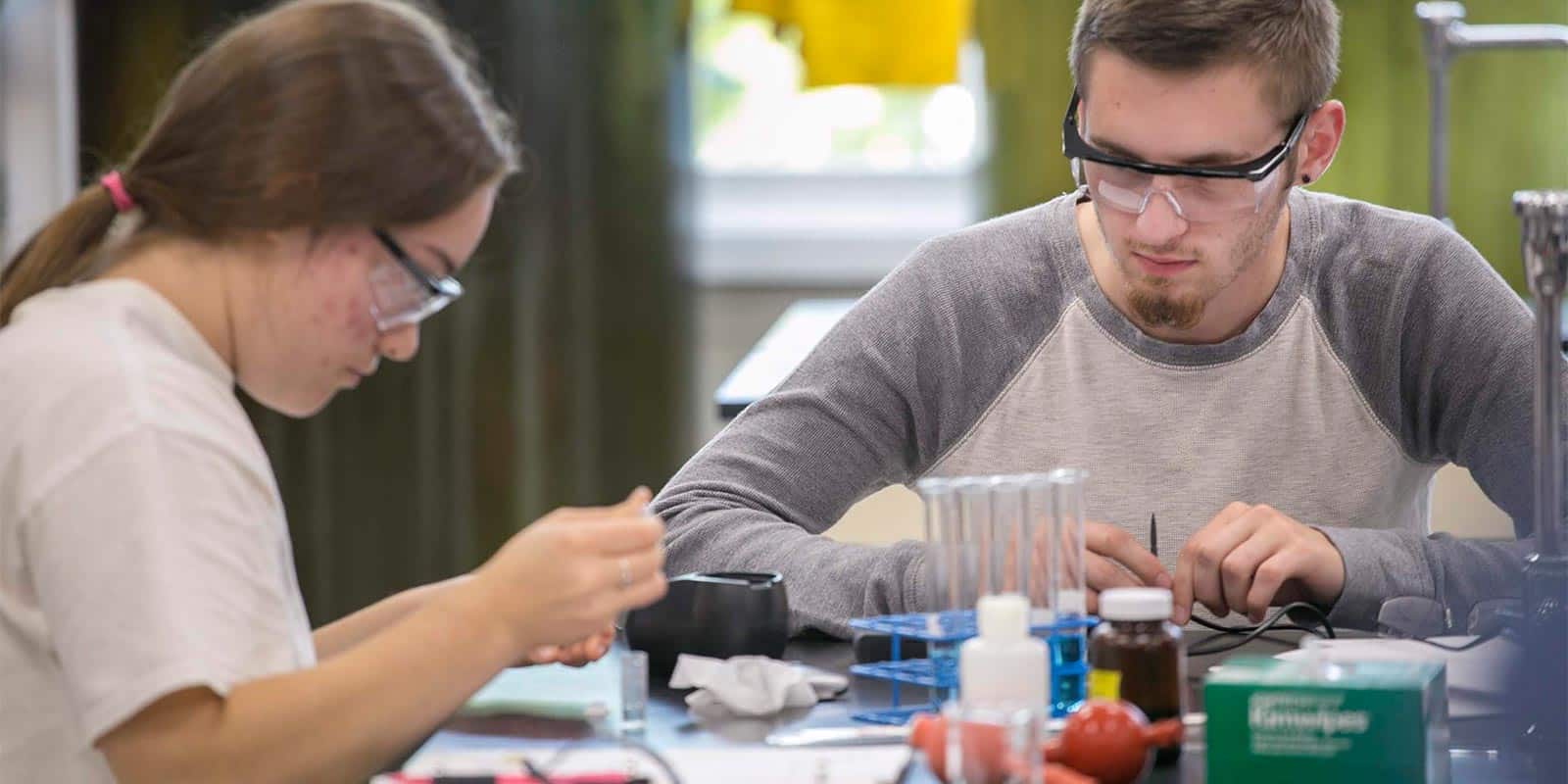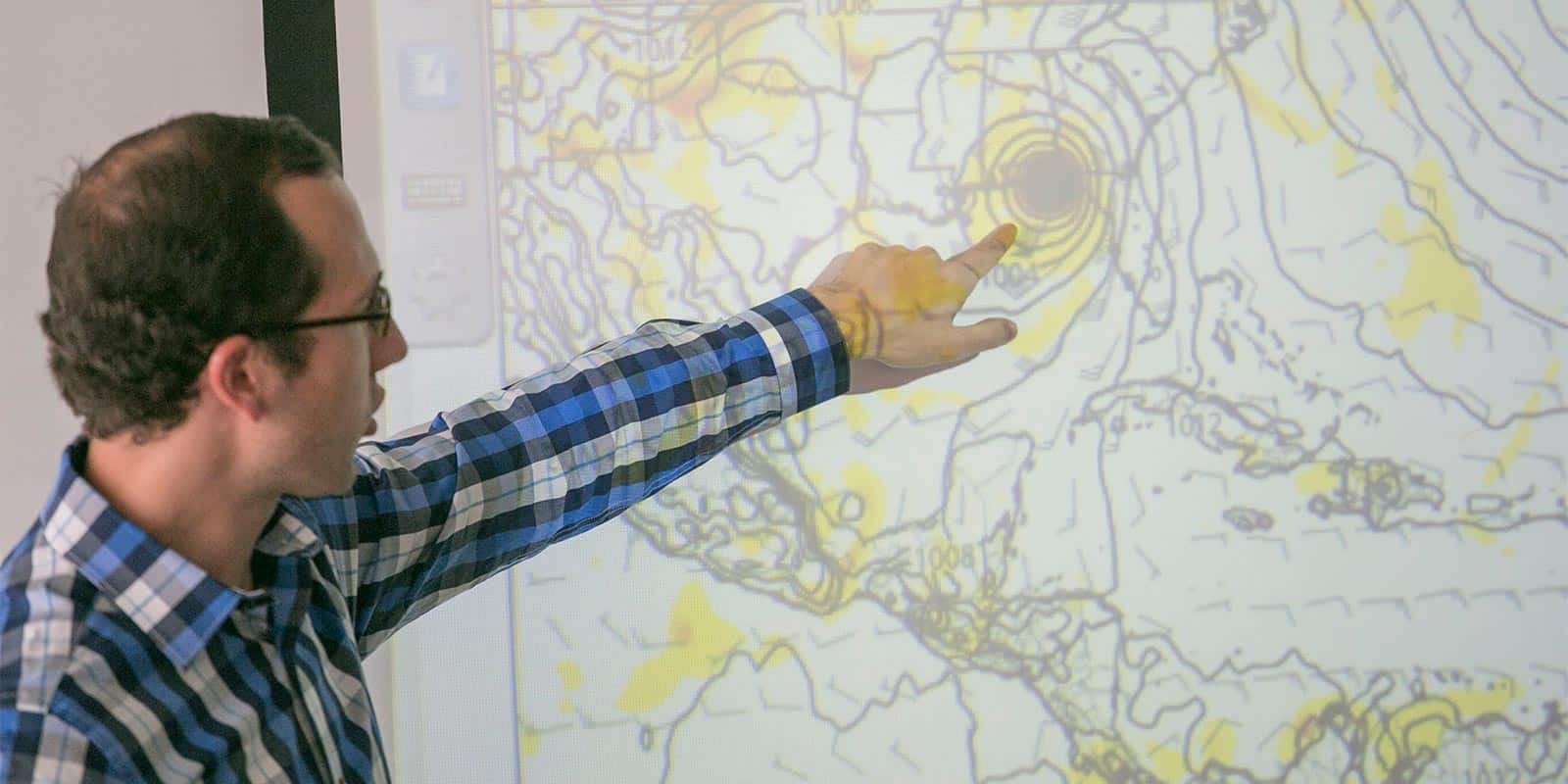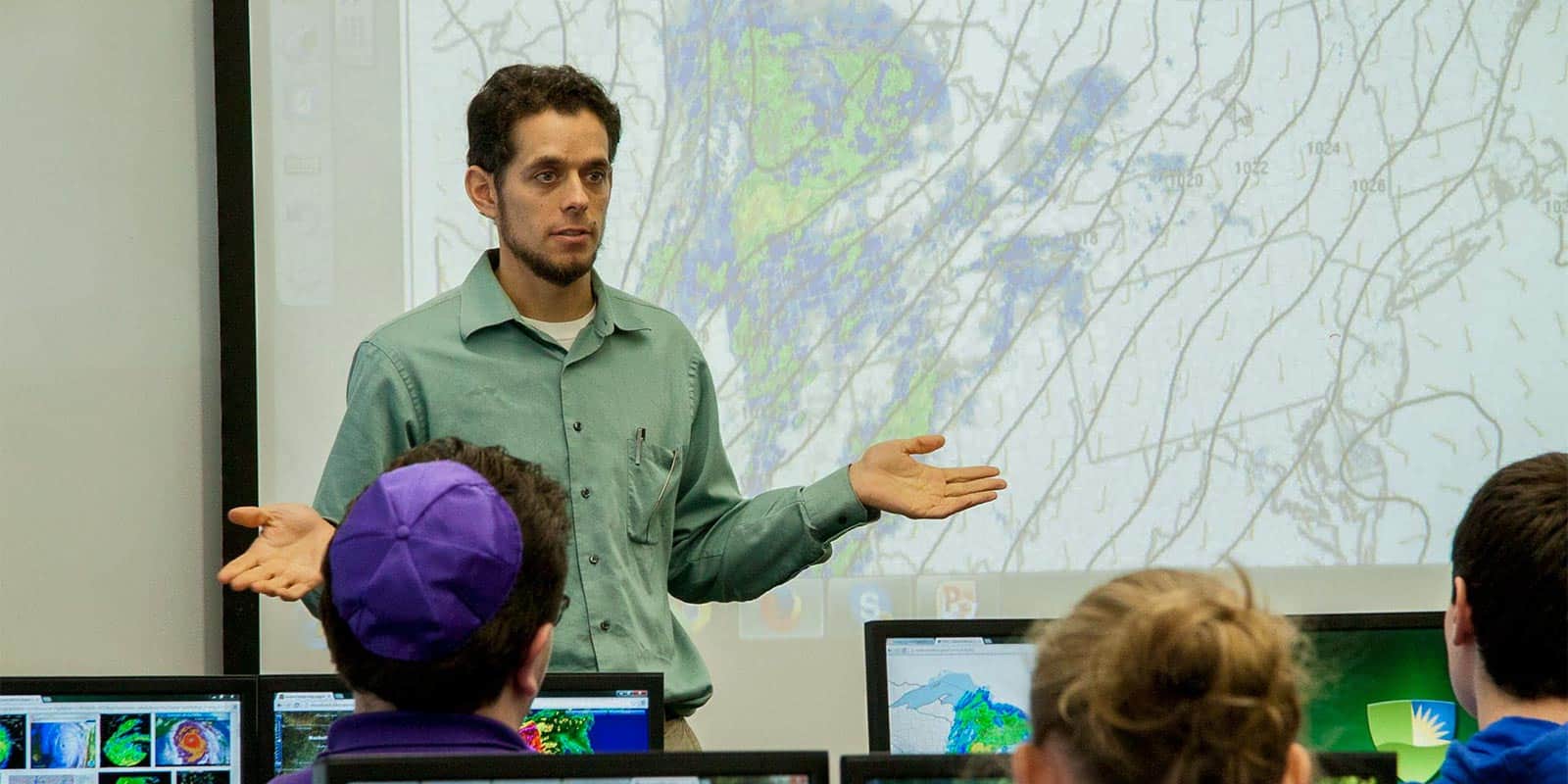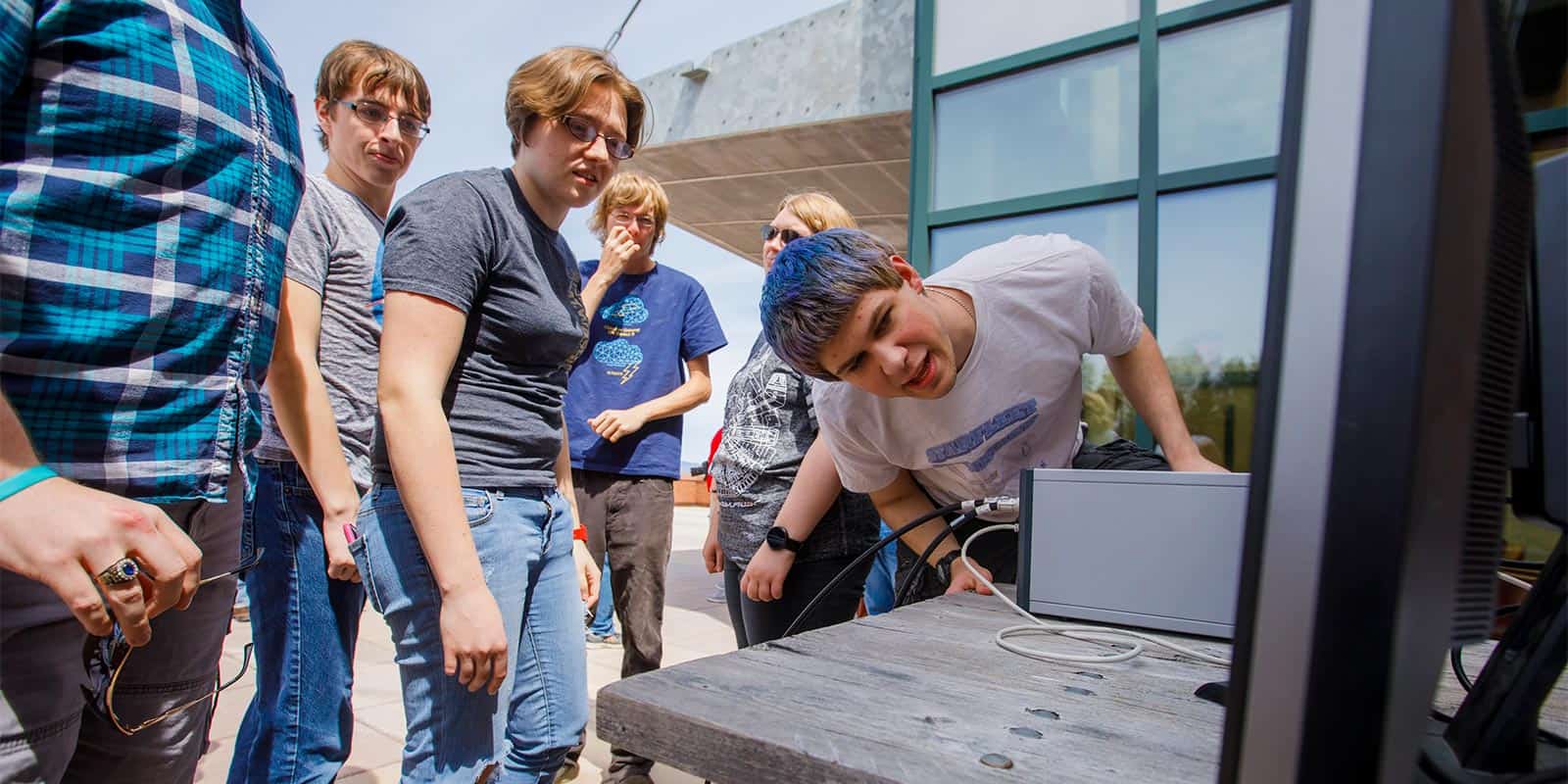Interests: Sciences
Geology
Exercise Science
Environmental Science
Environmental Chemistry
Climate Change Science
North sees straight to the problem and gets straight to fixing it.
Are you concerned about climate change and how it will impact you and future generations? Did you know that we can still avoid the worst impacts? At Northern Vermont University-Lyndon, we are training the next generation of scientists to address the climate crisis head-on.
The new climate change science program at NVU-Lyndon prepares students with a passion for environmental issues to become effective leaders and problem-solvers. This innovative program allows students to understand climate change in an interdisciplinary manner: you’ll develop a strong foundation in atmospheric and environmental sciences, including biology, chemistry, and geology, as well as the communication skills needed to become an effective advocate.
One of the first programs of its kind in the nation, our climate change science program offers small classes and a supportive faculty who will challenge you to grow as a scientist and leader in this critical field.
A CULTURE OF HANDS-ON LEARNING
As an NVU-Lyndon climate change student, you’ll enhance the knowledge you gain from your coursework with hands-on, real-world experience with internships, professional development opportunities, and more. You’ll learn the science behind climate change in classes like meteorology and physical climatology then learn to apply the science in real-world situations. You’ll be able to communicate the realities of climate change, massive storms, and political issues after taking classes in public speaking and presenting to groups around the region on climate change risk.
Upon graduation, you’ll be able to communicate the realities of climate change, its impacts on weather, ecological systems, and our food and water supply after taking classes in public speaking and presenting to groups around the region on climate change risk.

Beyond the Classroom
Starting in year one, you’ll establish an understanding of important meteorology concepts and tools through our atmospheric sciences department. From there, you’ll have opportunities to embark on faculty-guided storm chasing trips, track weather changes in our weather center, and learn to communicate the science and risks to the public.

Student Advocacy
You’ll have the option to join The Climate Consensus, a group of students and faculty dedicated to making an impact in our community. Most recently, students have produced videos for social media, presented at local meetings and schools on the impact of climate change, organized a local climate strike, and ran a half marathon in recognition of the growing global movement to increase awareness.

Facilities
Climate Change students at our gorgeous, hilltop NVU-Lyndon campus get hands-on training in our modern facilities. We have a weather deck with an excellent view for observing the weather and launching weather balloons. We also have dedicated computer lab and research space for atmospheric and climate change sciences students.
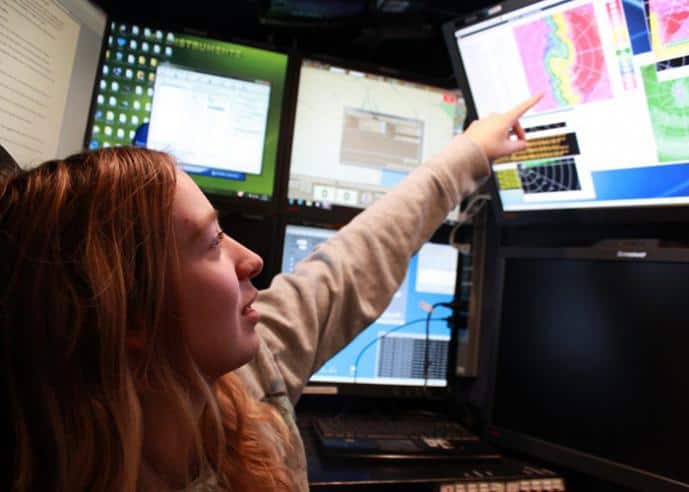
High-Impact Internships
With alumni and professional connections across the world, our students always find invaluable internships to kick-start their careers. Recent internship locations include Southwest Airlines, National Severe Storms Laboratory, National Weather Service, AccuWeather, and the Vermont Institute of Applied Meteorology.

Networking and Conferences
The student-led Northeasetern Storm Conference allows attendees to present new research in the field to fellow colleagues. Learn more about the conference on the Lyndon AMS and NWA chapter website. Climate Change students also attend the American Meteorological Society conference as a way to connect with climatologists from across the country.
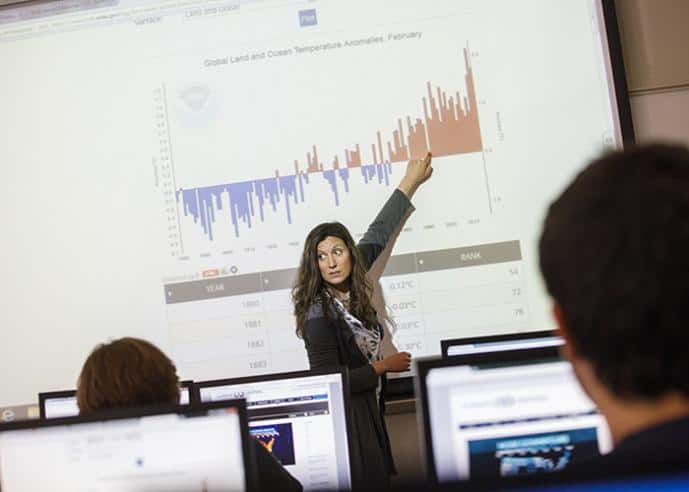
Faculty Committed to Your Success
The faculty support and small classes help students excel. “There’s a lot of one-on-one with professors,” says Maison DeJesus ’22. “If you don’t understand something, you can meet with them, and they’ll explain it. The amount of help they offer is great.”
Chemistry
Our chemistry program at Northern Vermont University-Johnson joins physics and mathematics, biology and medicine, and the earth and environmental sciences — and it affects almost every aspect of our lives. Chemistry can be used to solve problems related to health, materials, and energy use, among other important practical applications.
If you minor in chemistry, you’ll complete at least two general chemistry courses, two upper-level chemistry courses, and a course focused on environmental problems for a total of 19 credits. The chemistry minor isn’t available to students in our bachelor of science biology program.
Chemistry is a suitable background for a variety of careers, in food science, medicine, teaching, chemical and molecular biology, and other fields at hospitals and laboratories, biotechnology and pharmaceutical companies, government agencies, and other workplaces.
Private Industry
The private sector of meteorology has seen tremendous growth in recent years. We have designed this concentration after careful and thoughtful consultation with professionals in the private sector to ensure our students have the requisite skills to embark on a successful career.
Our graduates go on to careers in a wide range of fields, including working at or founding commercial forecasting companies, IT, marketing meteorological hardware and software, trading in the commodities markets, and developing satellite technology.
National Weather Service/Military
If you, like many of NVU-Lyndon’s atmospheric sciences program alumni, are driven to pursue a career with the National Weather Service (NWS), the National Weather Service/military concentration is a great way to focus on achieving your goals.
The NWS is the largest employer of forecasters across the country. In addition to forecasting, Lyndon graduates have also pursued careers within the NWS related to hydrology, IT, management, and operational research. Lyndon graduates can be found in NWS offices all over the country. Our graduates have also successfully pursued forecasting careers in the military. Many have enlisted in the armed services while others have landed civilian jobs.
Graduate School
If you are interested in teaching, research, or even a career with the National Weather Service, this concentration within our atmospheric sciences degree program is for you. Graduates from NVU-Lyndon with the concentration in graduate school go on to careers in laboratories and colleges and universities across the country.
Our curriculum prepares students for advanced study. Lyndon atmospheric sciences students have successfully completed advanced degrees at universities including MIT, Penn State, Colorado State, Florida State, University of Oklahoma, University of Wisconsin, University of Rhode Island, and many others.

